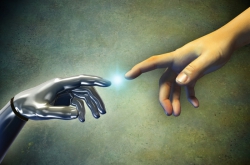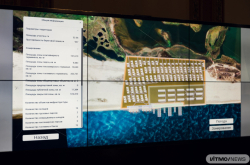The project is conducted by order of the Ministry of Education and Science of the Russian Federation and focuses on key trends that are included in the list of priorities of the Scientific and Technological Development Strategy of the Russian Federation. There are seven of them:
-
transition to advanced digital and intelligent industrial technologies, robotic systems, new materials and construction methods, Big Data processing systems, machine learning and AI;
-
transition to ecologically safe and energy conserving power industry, increasing the efficiency of mining and deep conversion of hydrocarbon fuels, generation of new sources of energy; development of new methods for transporting and storing energy;
-
transition to personalized medicine, high-tech healthcare, and health protection technologies, including those that have to do with the rational use of pharmaceuticals (primarily bactericides);
-
transition to highly productive and ecologically safe agriculture and aquaculture, development and introduction of systems for rational application of means of chemical and biological protection of agricultural plants and livestock, storage and effective processing of agricultural products, development of safe and high-quality food products, including functional foods;
-
counteraction to technogenic, biogenic, sociocultural threats, terrorism and ideological extremism, cyber threats and other threats to the society, economics and the state;
-
cohesiveness of the territory of the Russian Federation by means of development of intellectual transportation and telecommunication systems, as well as assuming and holding leadership positions in the field of setting up international transportation and logistics systems, exploration and development of space and airspace, the World Ocean, Arctic and Antarctic;
-
capacity for an effective response of the Russian society to major challenges with regard to the interaction between man and nature, man and technology, social institutions at the modern stage of global development, including the application of methods from humanities and social sciences.

Natalya Lukovnikova underlines that the strategy’s distinctive feature is that it is aimed at global challenges. Similar strategies are accepted in European countries, where global development trends are governed by such organizations as the UN or UNESCO, and then implemented on particular territories with regard to existing resources and priorities.
The workgroup brought together specialists that represent particular competencies. ITMO University represented competencies in the field of artificial intelligence and machine learning technologies, St. Petersburg Polytechnic University - competencies in the field of advanced digital and manufacturing technologies, robotic systems, new materials and construction methods, the Higher School of Economics - competencies in the field of foresight, the Industrial Projects Management Center – competencies of implementing new project initiatives in the field of manufacturing technologies. The workgroup also includes professionals from the Center for Strategic Research North-West foundation who possess competencies in methodological administration of projects and conduct of research projects of different degrees of complexity.
The workgroup has already had several expert sessions, one of which took place in Rybinsk in the beginning of May. Back then, the specialists discussed the current results and defined some of the distinctive features of Russia’s market of innovations. They’ve also earmarked cases of development of manufacturing technologies and changes that can follow the introduction of artificial intelligence systems.
During the first stage of the group’s work on the forecast, the experts examined the fields where the tendency for using AI is already present: those were the manufacturing industry, medicine, logistics, and power industry. The one that is developing most quickly is medicine. Still, in Russia, medical enterprises and the heavy industry are contingent on regulatory authorities, so the introduction of new technologies is mostly incurred by government regulations rather than business. The AI-based services that are currently used in Russia mostly have to do with decision support systems in such fields as logistics, banking, and telecommunications.

“In Russia, companies that offer various services and deal with many processes related to processing the clients’ personal data and data on clients’ behavior will be the first to actively introduce AI-based solutions. Those will be companies such as mobile providers, banks, services such as Yandex.Maps and Yandex.Taxi, online stores, etc. There are similar data processing tasks in the field of industry, as well, but those have much to do with particular fields’ specifics, i.e. a more careful approach to innovations, as the losses can be colossal,” comments Natalya Lukovnikova.
Therefore, many companies now offer not just a product, but also an “intelligent supplement”. For instance, aircraft manufacturers now sell not just an engine, but also data on its operation. Such data creates a whole range of products for different customers: for airline companies, this data can help organize cheaper maintenance, as it helps predict malfunctions; logistics specialists can use it to decrease fuel usage and arrange better routes. Consequently, simply developing new inventions is no longer profitable, as those can be easily copied by competitors. We now witness a transition from selling goods to selling services that come with goods.
“It is for this reason that many major companies, including those of resource industries, are starting to experience a staff shortage, especially when it comes to such specialists as data engineers and data scientists. Those are specialists that are not just programmers but know economics, as well, those who are able to come up with a new product or economic model based on existing data. For now, most companies are only collecting the necessary data and have yet to start analysing it. This is why now, when the market is only being shaped, it is a good time to launch pilot projects and analyse the market response,” shares the head of the Center for Science and Technology Foresight.

What is more, some companies that already understand what kinds of specialists they’ll be needing in the future launch their own educational courses, i.e. train future employees for their specific fields. This way, companies partake in forming the demand for specific skills and competencies that data engineers and scientists should possess.
Following the results of the forecast project, recommendations on overcoming the existing obstructions to introducing the technologies in question will be formed. The project also implies collaborating with an expert community on developing recommendations for improving the existing legislation for the purposes of advancing the development of particular fields.






